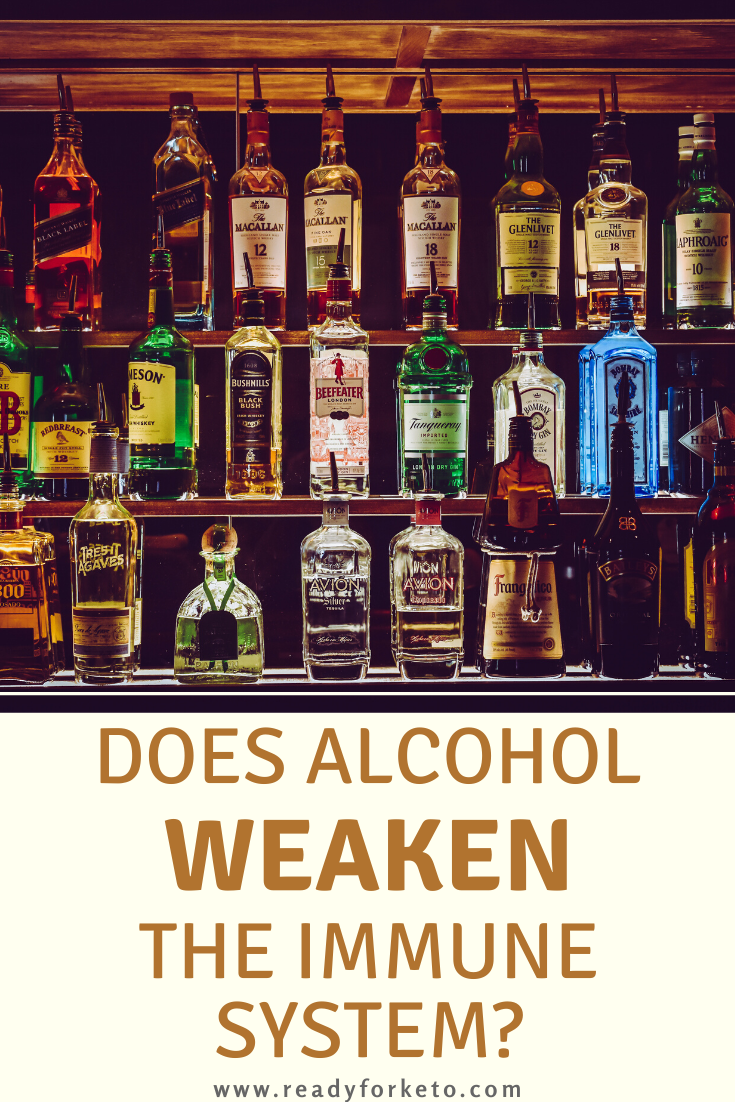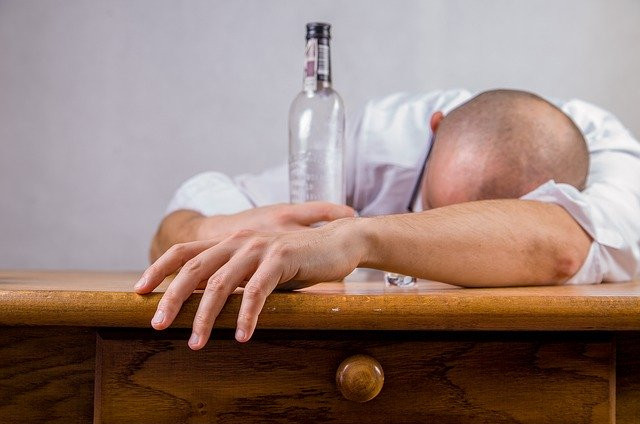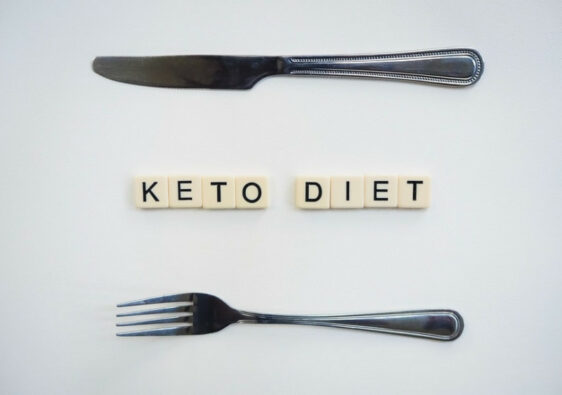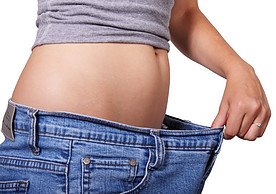Learn more about the relationship between alcohol and immunity and the effects of alcohol consumption on the risk of coronavirus disease in this post.

Your immune system protects you from infectious diseases, and if you get sick, it helps to neutralize the virus, bacteria, or other pathogens that are responsible. A weakened immune system increases both your risk of getting sick and the severity of infections.
Not only that, but your general well-being also influences the resistance of your immune system. That’s why habits like exercise, sleep and a healthy diet reduce the risk of getting sick.
But what about alcohol? Does drinking alcohol affect the immune system?
In these times of social distancing, many people arrange video calls and “virtual happy hours” or “quarantine drinking” to experience stress relief and maintain friendships.
In this article we examine the science of alcohol and immunity, the relationship between alcohol and general health, and the effects that alcohol consumption can have on the risk catching the new coronavirus disease.
The Science of Alcohol and Immunity
Alcohol consumption affects your entire body, starting with the gastrointestinal tract.
As alcohol is absorbed, it starts to affect the structure and other properties of your stomach lining.
Some research shows that people who drink more than 1-2 alcoholic drinks a day have less healthy intestinal bacteria compared to people who drink less. And as you may already know, your intestinal flora is an essential part of your immune system.
As a result, chronic alcohol consumption can have negative effects on your digestive and immune function.
In addition, alcohol also affects the ability of your microbiome to communicate with your intestinal immune system.
Finally, before alcohol circulates in your body, it also affects the function of important immune cells called neutrophils (a type of white blood cell) and intestinal T-cells.
And for chronic drinkers, the systemic effects are equally worrying.
For example, people who habitually drink too much have a higher risk of HIV transmission and disease progression, a higher risk of cancer, a higher probability of liver disease and a higher risk of problems such as pneumonia, sepsis and post-operative complications when hospitalized.
Fortunately, the effects of alcohol also depend on how much and how often you drink.
Moderate Alcohol Consumption
So far we have painted a rather bleak picture of what happens to your health and immune system when you drink alcohol.
However, the amount and frequency of alcohol consumption also plays a role in the effects on your immune system.
Some researchers even believe that “light to moderate amounts of polyphenol-rich alcoholic beverages like wine or beer could have health benefits … compared to alcohol abuse or abstinence”, including benefits for the immune system.

So, how much alcohol are we talking about exactly?
According to the above-mentioned 2007 report, the consumption of 3-4 polyphenol-rich beverages per day (such as wine or beer) has no adverse effects or little benefit on immune function.
On the other hand, the same scientists warn that drinking more than two drinks a day has other adverse health effects that are likely to cancel out any small benefit to the immune system.
Women tend to metabolize alcohol differently than men, making the safe upper limit one drink a day for women.
Conversely, experts say that even moderate alcohol consumption should be avoided if there is a chance that you may get sick or if you experience symptoms of infection.
Excessive Alcohol Consumption
We have already talked about the fact that drinking too much – and over a long period of time – is terrible for your immune system.
However, research also shows that excess alcohol – at least four drinks in 2-3 hours for women or five or more drinks in 2-3 hours for men – can immediately disrupt your immune function.

White blood cells, called monocytes, are involved in both innate and adaptive immunity, and binge drinking reduces their concentration and this suppressive effect can last 24 hours or longer!
In addition, excessive drinking and other problematic drinking patterns can increase your risk of heart disease, high blood pressure, cancer, liver disease, and other chronic health problems.
If you are dealing with a substance-related problem, The National Institute on Alcohol Abuse and Alcoholism is here to help.
Now let’s look at the possible effects of alcohol on your risk of contracting COVID-19.
First of all, there is a myth circulating on the Internet that drinking vodka or other strong drinks reduces the probability of contracting COVID-19.
In February, someone even asked the World Health Organization (WHO): Does alcohol consumption prevent the new coronavirus?

According to a 2020 report in the Journal of Hospital Infection, ethanol (alcohol) in concentrations of 62% or higher kills viruses such as the novel coronavirus on hands and surfaces.
However, the virus-killing effect of strong alcohol does not apply to drinking high-proof alcohol.
And if you want to use vodka or another spirit drink to disinfect hands or surfaces, make sure that the concentration is at least 62%.
Apart from the myth, there is no direct research on the link between alcohol consumption and SARS-CoV2 – at least not yet.
Nevertheless, excessive alcohol consumption generally lowers resistance to infection and can prolong the symptoms and duration of the disease.
For example, a study published in the Journal of Immunology in 2019 states that “chronic alcohol consumption is associated with an increased incidence of disease severity during [lung] infections”.
According to the results of this study, chronic alcohol exposure seems to make the immune cells “forget” how to fight infections, even if they have been exposed to a virus before.
A review published in the journal Alcohol in 2016 also found that both short-term and long-term alcohol exposure alters the way the cilia (microscopic hair-like structures that help keep your lungs clean) function.
Over time, excessive alcohol consumption leads to cellular stress and inflammation, which increases the risk of pneumonia and other health problems of the lungs.
In general, there is a high probability that unhealthy drinking will affect your innate immunity and increase your risk of developing new coronavirus disease.
And if you get COVID-19, alcohol abuse could also make your symptoms worse because it affects your adaptive immunity.
So if you want to avoid COVID-19 and other infections, drinking alcohol is not recommended.
Another important fact to keep in mind is that social distancing, quarantine, and other forms of isolation can cause some people to drink more alcohol.
Loneliness is a significant factor in alcohol and drug abuse, so now is the perfect time to socialize with friends or family members, to Skype and to engage in non-alcoholic activities.
Conclusion: Drink Less for a Healthier Immune System
The bottom line is that moderate alcohol consumption can strengthen your immune function, but excessive drinking and other types of alcohol abuse seem to have the opposite effect.
Although it can be tempting to drink alcohol to numb the loneliness in times of corona or to enjoy virtual happy hours, too much alcohol consumption could endanger your general health and predispose you to the novel coronavirus disease.
Instead of reaching for your third or fourth drink, consider reaching out to friends or family with a phone or video call.
Finally, most experts believe that some people should stay away from alcohol altogether, especially in times of corona.
If you are pregnant, on medication that interacts with alcohol, or if you suffer from certain diseases (such as liver disease), the safest strategy is to avoid alcohol altogether.
Thanks for reading!
Anna
www.readyforketo.com






I think your article comes at such a key time for so many: I think many are finding themselves drinking more than they would normally due to a change of routine, or perhaps changes in mental health due to dealing with everything that comes with Coronavirus. Hopefully this article will prove useful to so many in this situation. I would not classify myself as a ‘drinker’ but have found myself saying a few times over the last few weeks, “i really fancy a glass of wine”. Perhaps this is because every night feels like a weekend when you haven’t got to get up for work the next day?
I had not considered the rate of which you consume alcohol and the effects this can have before. I had only really thought about it over a period of time e.g. a week, so thank you for sharing this, I will certainly be passing this information on.
Thanks, Emma!
This is a very useful article and thanks a lot for sharing it with us. You put a chapter here in which you say that alcohol does not help you avoid the new corona virus. I have heard and read on websites that alcohol helps eliminate this risk of infection but as you said, it is not valid for those who drink alcohol. I agree that this addiction only reduces the level of our immune system. Unfortunately, I had a case of alcohol addiction in my family and this led to the destruction of the family, which is the most tragic thing.My opinion is that we must drink responsibly and avoid these dangerous temptations.
Thanks for reading!